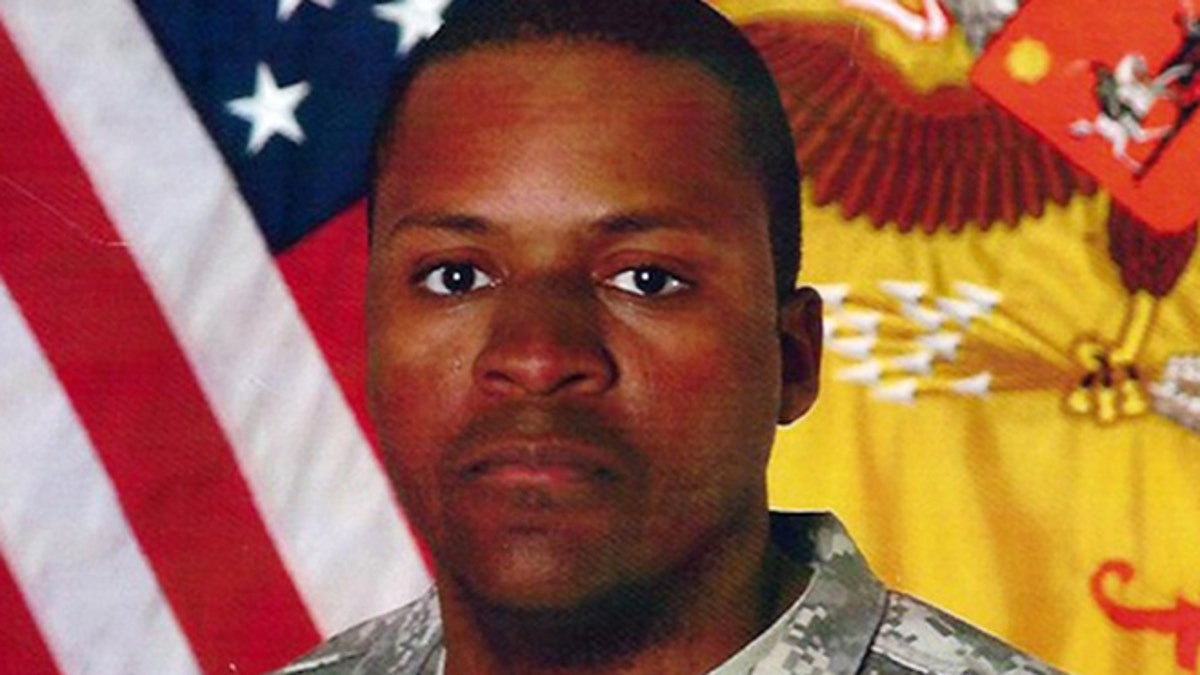
Sgt. 1st Class Randy Johnson of the 2nd Stryker Cavalry Regiment died on Sept. 27, 2007 in Iraq after the vehicle he was traveling in hit a bomb. (US Army)
A British bombmaker who tried to blend into society as a taxi driver was found guilty Thursday for his role in making bombs that targeted U.S. troops in Iraq in 2007, including one that killed an American soldier.
Anis Sardar, 38, of northwest London, was convicted of two counts of murder and conspiracy to murder, Reuters reports. He is expected to be sentenced Friday.
One of the bombs, which were buried under roads leading west out of Baghdad near the U.S. Army’s Camp Liberty, exploded as a U.S. armored vehicle drove over it on Sept. 27, 2007. The blast killed Sgt. 1st Class Randy Johnson of the 2nd Stryker Cavalry Regiment, a 34-year-old from Washington, D.C.
Sardar returned to the U.K. in 2007 after Johnson’s death, working for three to four years as a volunteer offering support for young Muslims held in the Feltham Young Offender Institution in west London, a court heard, according to the BBC.
At the time, Sardar’s house was raided by authorities and he was found in possession of a compact disc containing instructions on the manufacture of explosives, but he was not charged.
Sardar later appeared to have settled down into family life and was working as a taxi driver until authorities linked his fingerprints to a piece of sticky tape used in one of the bombs found in Iraq. His fingerprints were taken by officers at London’s Heathrow Airport when he re-entered the U.K. in 2007.
During the trial, Sardar’s lawyer told the court that the defendant admitted his fingerprints were found on some of the bombs, according to The Associated Press.
Parts of the bombs, including the one that killed Johnson, were retrieved from the blast site and analyzed by forensic scientists at the FBI's Terrorist Explosive Device Analytical Center in Quantico, Va.
"This was a landmark prosecution that shows we will do everything in our power to ensure that international boundaries are no barrier to terrorists in the U.K. being brought to justice for murder committed anywhere in the world," Sue Hemming, head of Special Crime and Counter Terrorism at the Crown Prosecution Service, told Reuters.
"Although Anis Sardar's fingerprints were found only on two of the bombs, it is beyond doubt that he was part of a joint enterprise to make four such devices, and potentially many others, given their similarity and location," she added.
One of Sardar’s fellow bombmakers, Sajjad Adnan – whose fingerprints were found on each of the devices that were retrieved – has not been found, the BBC reports.
Sardar claimed in court that he spent a decade living in Syria’s capital, Damascus, learning Arabic and Islamic Sciences, but never finished his degree. While in Syria, he said he became horrified at the 2003 American invasion of Iraq, and admitted to spending an afternoon helping a group of men in a village assemble bombs by wrapping tape around components.
Pvt. Elroy Brooks, who was on board the armored vehicle with Johnson, said he was blown about 45 outside the vehicle after it ran over the bomb.
Brooks told the court that went he went back to check on Johnson, “only half of him” was left.
“His torso was ripped and his left leg was pretty much just attached by the skin and the rest had been blown off,” Brooks said, according to The Guardian. “His eyes were filled with dirt and he had holes all over the place.”
Brooks said Johnson’s last words were “Don’t let me die here,” and then he passed out.
Johnson left behind his wife and two children.
